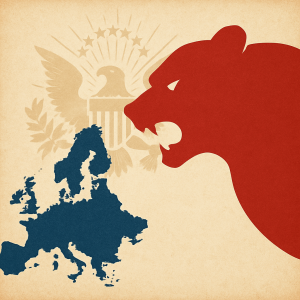It looked like a wedding, maybe a cousin party, I don’t know, but in any case a family celebration. Apart from Cousin Boris, who looked a bit uneasy everyone seemed to be in such good spirits that this Western reunion sent out three important messages.
The first is that China, the China that so worries its Asian neighbours, the United States and now Europe as well, the China that we keep saying will soon dominate the world after it criss-crossed the world with its silk roads, well no, it has not yet won.
Its assets are considerable. A simple factory of the world yesterday, it now excels in artificial intelligence and high technology. Not only is China no longer a mere reservoir of low-cost labour, but its armies, and above all its navy, also make it a military power whose strength is growing every day.
This is why the US has come to see China as a threat whose rise it must counter, but faced with a united Western front, there is no longer a “Chinese century”, no “Chinese pre-eminence”, no “new Chinese era”.
The United States and the European Union alone leave China far behind. All of them together, the seven richest democracies, the G7 who met this weekend in Cornwall, put China’s renaissance into perspective in a way that is so true that Mr Xi himself has admitted it.
Ten days before this Western family party, he told his Political Bureau on 2 June that China needed to make itself “more reliable, amiable and respectable”, to be “humble and modest”, to “win the trust of the majority and constantly expand its circle of friends” – in short, to do the opposite of what it has been doing since he took over the reins of his party-state.
This was a proper self-criticism, and whether or not Xi Jinping was forced to do so by a weakening in the leadership, this admission of failure reflects a reality. By dint of arrogance, China has isolated itself. By dint of showing its muscles and doing so too soon, before it really had the means to impose itself as a 21st century hyperpower, it has united too many people on too many continents against itself.
This does not mean that Europeans and Americans are totally on the same page with regard to Beijing. Neither are the Japanese or the Indians, the Australians or the South Koreans, but they are all closing ranks in the face of what they all feel is a common threat and, in turn, this common front strengthens Joe Biden in the match he kicks off on Wednesday with Vladimir Putin.
That’s the second thing these images from Cornwall say, because it’s a big contrast to the days when all we saw was a rising Russia and a disconcerted West.
The West has now regained a unity lost since the Iraq war, while Mr Putin has been reduced to disguising his dictatorship less and less because he fears that the slightest semblance of freedom will cause him to lose the parliamentary elections next September. It is a man who is losing ground that the American president will meet in Geneva, a man who needs a new modus vivendi with the United States to re-establish his economy and get out of the quagmires in which he has got himself into in Ukraine and Syria.
The third lesson from Cornwall is that a US President was heard to say that “the European Union is a very strong entity (and) a backbone of NATO”.
These few words count. They will carry a lot of weight in the years to come because they mean that in the age of the Chinese challenge, the United States needs a Union strong enough to share with it the burden of the Atlantic Alliance and the solidarity of the democracies.



